News
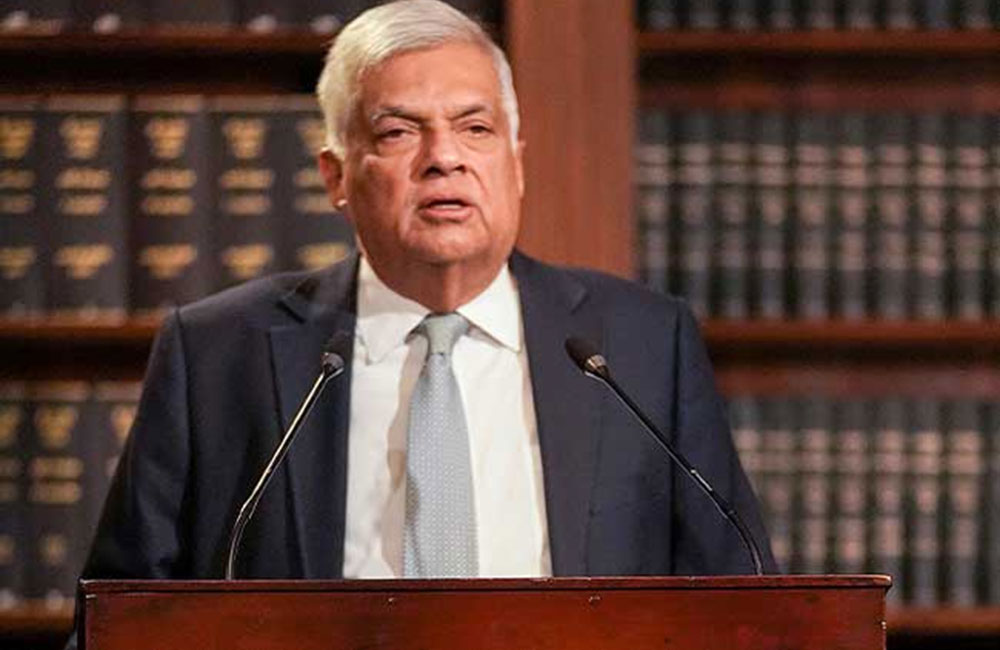
Sri Lanka will be a fully developed country by 2048; economic growth will be based on four pillars - President
President Ranil Wickremesinghe said that nobody will be allowed to drag the country back to the state it was in a year ago.
He said that his government's objective is to transform the country into a fully developed nation on the global stage by 2048, adding that failure to align the country's economy with the modern world & the latest trends in technology, the country will regress
President Wickremesinghe delivered a special statement on the national transformation roadmap on Thursday (1) evening.
Addressing the government's efforts over the past nine months to revive Sri Lanka's economy, the President said the country's economy is gradually recovering from the crisis, thanks to correct policies including the collective efforts of the people.
Outlining the government’s efforts to revive the country’s economy, President Wickremesinghe said these economic reforms will lead to decreased cost of living, improved standards of living, relief for the poor, and a culture of transparency.
President Ranil Wickremesinghe applauded the resilience of all Sri Lankans who navigated through challenging times, driven by their love for the country & said by persisting a little longer on this trajectory, an economically stable future could be achieved devoid of hardships
Sri Lankan President Ranil Wickremesighe said that the country's national transformation roadmap will be based on four pillars to drive economic growth, namely the State Finance and Financial Reforms, Investment Promotion, Social Security Net, and the restructuring of State Owned Enterprises.
The President said the necessary reforms will be introduced to achieve long-term debt sustainability, while also introducing new economic policies that will renew faith on the country's economy.
President Wickremesinghe announced the introduction of the Lab Methodology for effective business proposal implementation. This new system will involve ministers, officials, subject matter experts, & private sector representatives collaborating to address obstacles & facilitate the smooth roll-out of investments & projects by actively engaging the private sector .
President Wickremesinghe said over the years, the Sri Lankan people have made three main demands: combating corruption, protecting the poor & vulnerable sections of society, & ensuring transparency in government actions & practices. He assured that the government is actively working to meet these demands
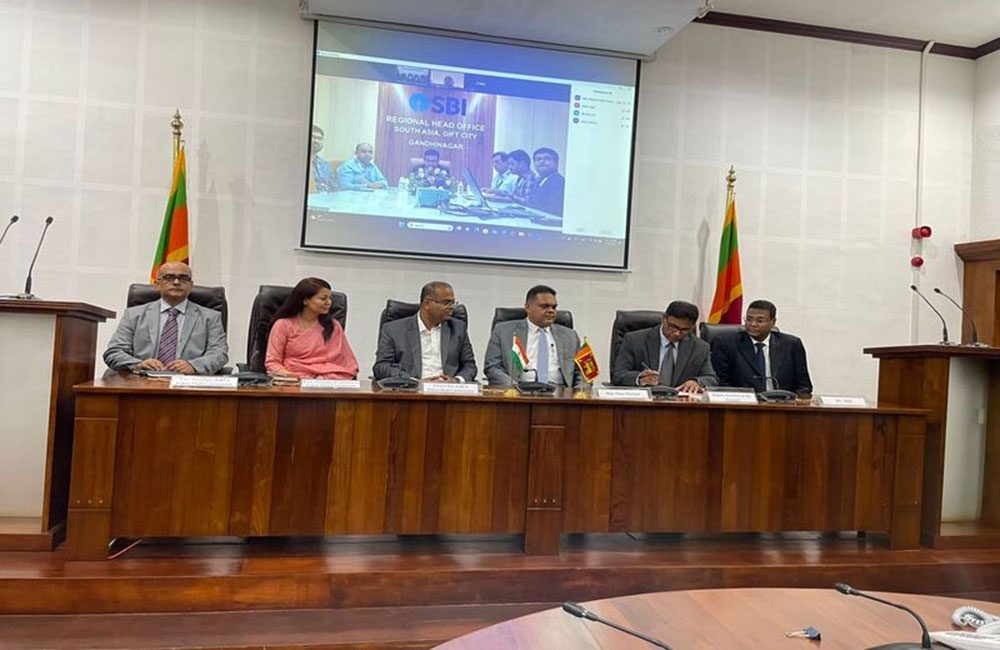
Indian credit facility of $1 billion extended till March 2024
The State Bank of India (SBI) has extended the tenure of the USD 1 billion credit facility provided to the Sri Lankan government for procurement of essential items in March 2022.
An amendment agreement was signed today (30), in the presence of the State Minister of Finance, Shehan Semasinghe, senior officials from the Ministry of Finance of Sri Lanka and officials from High Commission of India, Colombo. Officials from the State Bank of India joined the event from India virtually.
With the signing of the amendment agreement, the credit facility will be available for use of the Sri Lanka government for a period of one more year, till March 2024.
Since last year, the facility has been used for urgent procurement of fuel, medicines, food items and industrial raw materials, as per the requirements and priorities of GOSL.
The Indian government extended multi-pronged assistance of about USD 4 billion to Sri Lanka last year, through multiple credit lines and currency support, in line with India’s ‘Neighbourhood First’ policy.
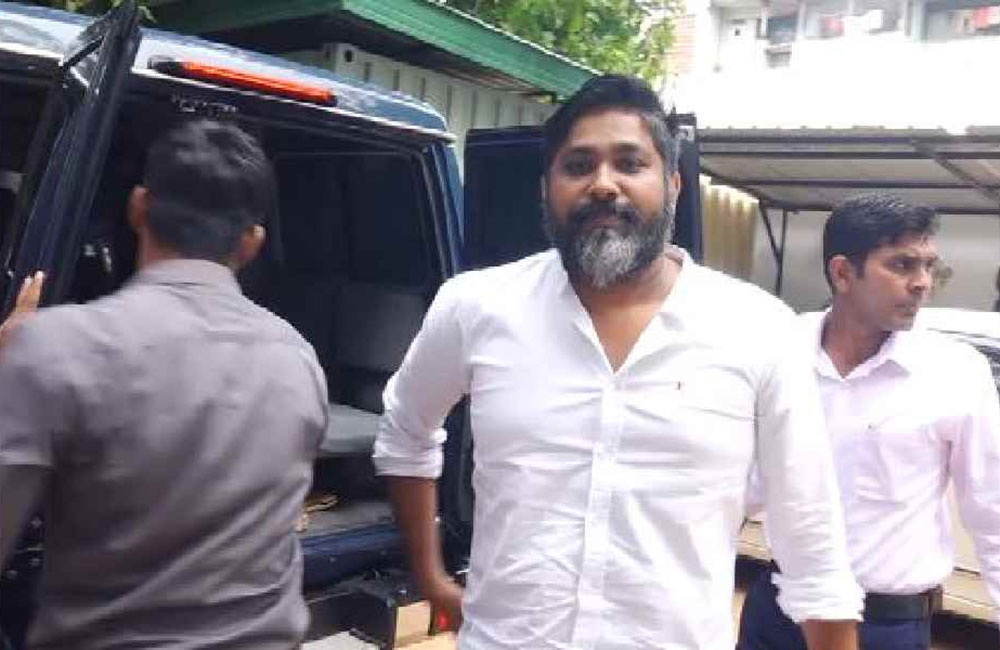
SL-Vlog’s owner remanded until June 07
The arrested owner of the YouTube channel SL-Vlogs has been remanded until June 07.
Bruno Divakara was taken into custody by the Criminal Investigation Department yesterday (31) after being questioned for over eight hours.
He was produced before Colombo Fort magistrate Thilina Gamage today.
Divakara has been accused of releasing a video containing controversial comments against Buddhism by stand-up comedian Nathasha Edirisooriya.
She is also under arrest.
A few days ago, Divakara told the media that responsibility of any statement should be borne by the maker of the statement.
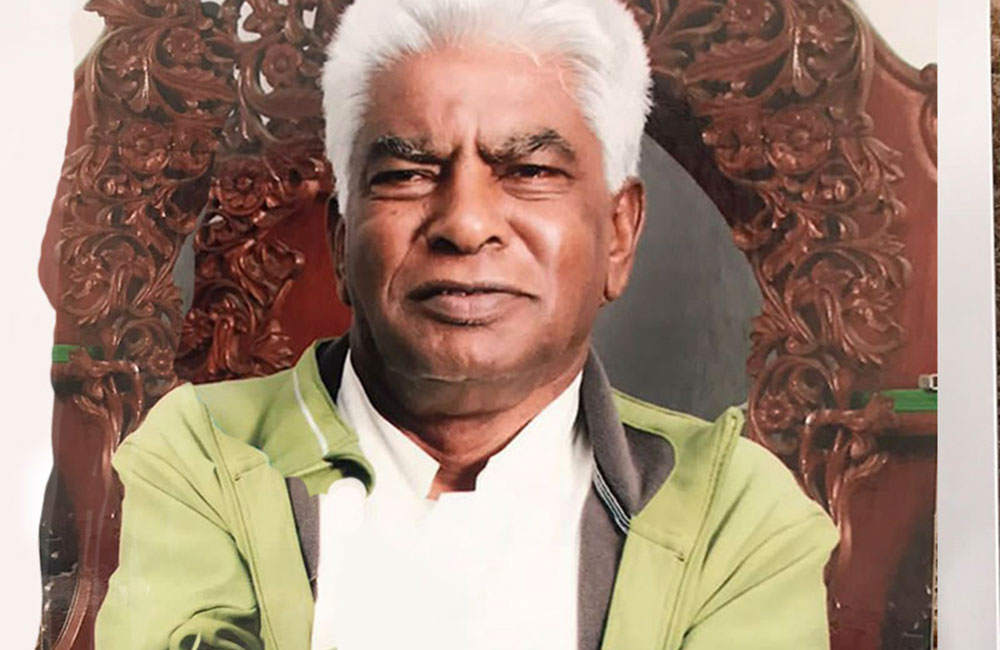
Gunasinghe Suriyapperuma passes away
Gunasinghe Suriyapperuma, the former Chairman of Sri Lanka Public Estate Workers Union, passed away at the age of 77 today (30).
He was also a former organizer of Sri Lanka Freedom Party’s Nuwara Eliya Constituency and is an alumnus of Mahinda Maha Vidyalaya, Kandapola.
Mr. Suriyapperuma, who has also served as a member of the Central Provincial Council and a Councillor of the Nuwara Eliya Municipal Council, entered into politics with the late Vijaya Kumaranatunga from the Sri Lanka People’s Party.
He is the elder brother of Sena Suriyapperuma who is a well-known social activist who has held executive positions in several banks and government institutions.
According to Mr. Suriyapperuma’s last wish, the family members have decided to conclude final rites within 24 hours. Accordingly, the remains will be cremated today (30) at 4 pm at the Nuwara Eliya Municipal Cemetery.
(Sri Lanka Mirror)
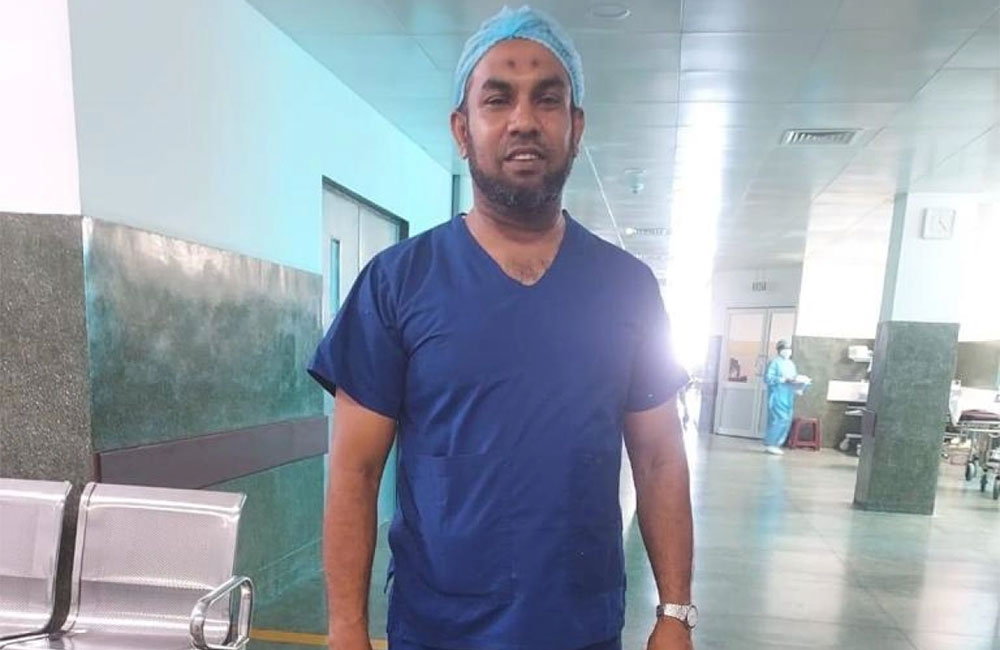
Dr. Shafi resumes work at Kurunegala hospital
Dr. Shafi Shihabdeen has resumed his duties today as the Senior House Officer in Gynecology and Obstetrics at the Kurunegala Teaching Hospital. This follows the decision of the Health Services Committee of the Public Services Commission, which recently ordered the Health Ministry to reinstate him.
In a letter to the Health Secretary, the Secretary of the Health Services Committee stated that disciplinary actions against Dr. Shafi have been terminated. The decision was based on the findings of an Expert Committee, which investigated the allegations against him.
According to the committee’s report, the written and oral evidence did not substantiate the allegations, leading to the termination of disciplinary actions.
Therefore, Dr. Shafi Shihabdeen has been reinstated and has resumed his professional responsibilities at the Kurunegala Teaching Hospital.
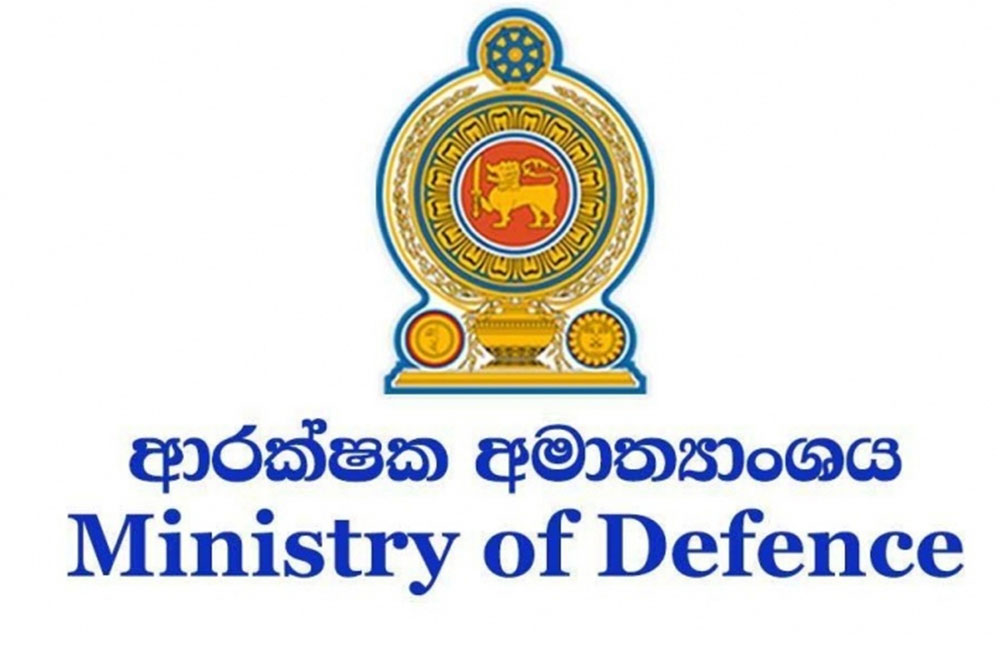
No room for architects of religious disharmony - State Defence Minister
There are obvious signs that another crisis is being triggered in the country once again, especially at a crucial time when the country is on a path of recovery from a severe economic crisis that was acutely experienced in recent times, said the State Minister of Defence Premitha Bandara Tennakoon.
Speaking to media at the Ministry’s office in Colombo today, he raised concerns into the “various elements with vested interests eyeing to disrupt the prevailing peaceful situation” by igniting religious disputes in the country.
The State Minister also emphasized the importance of maintaining religious stability for a healthty society.
“If a person or an organized group is trying to whip up communal sentiments or work with a similar motive, we will not hesitate to strictly enforce the law in accordance with the Chapter 9 of the Constitution and Penal Code 291 (අ), (ආ) he added.”
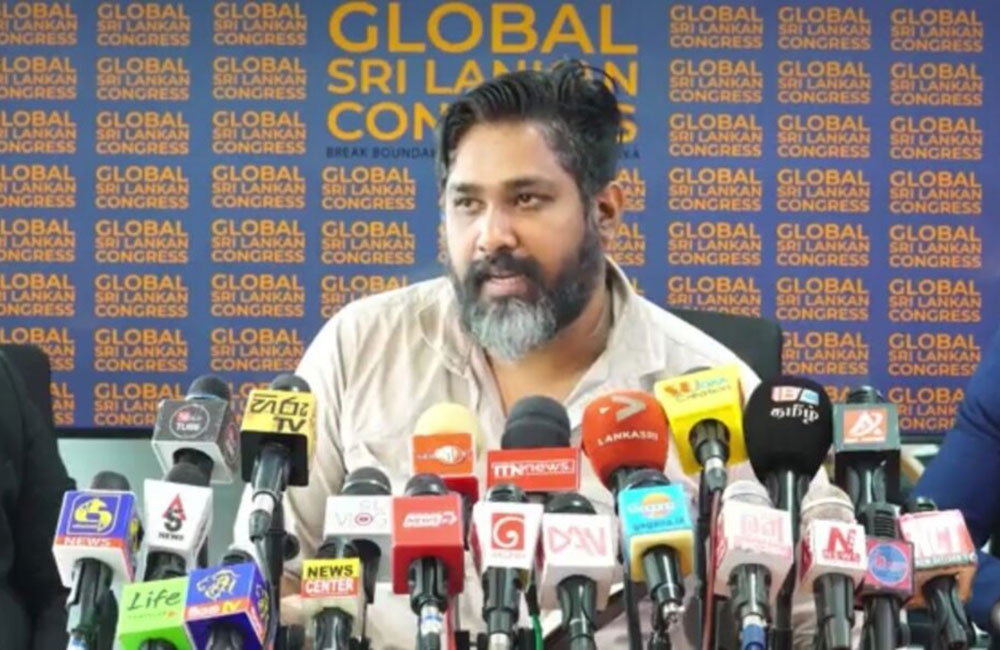
CID arrests SL Vlog’s Bruno Divakara
Bruno Divakara, the owner of the YouTube channel ‘SL-Vlogs’, has been arrested by the Criminal Investigation Department (CID), a short while ago.
He was arrested by the CID after being questioned for over eight hours regarding the recent controversial comments by stand-up comedian Nathasha Edirisooriya, who was also arrested recently, Police Spokesman SSP Nihal Thalduwa said.
Mr. Divakara was likely brought in for questioning as the video of concern, that soon went viral across social media websites, was initially published on the ‘SL Vlog’ Youtube channel.
The comedienne was arrested by the CID on 28 May after she found herself in hot water over certain remarks she had made, allegedly insulting Buddhism, Christianity and Islam during her segment at a stand-up comedy show recent hosted at a leading school in Colombo.
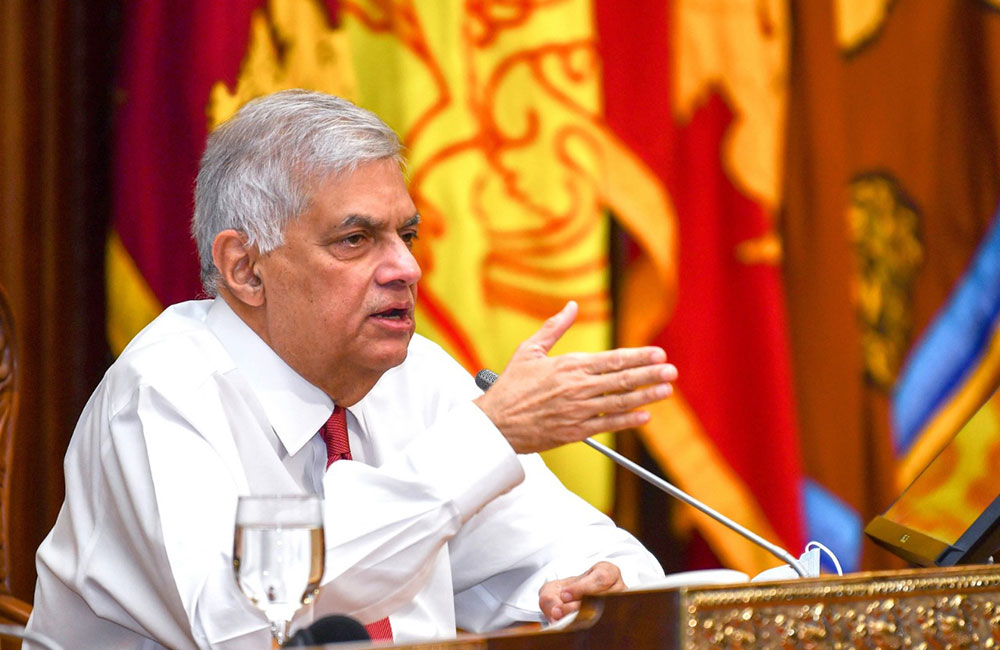
Sri Lanka examinations : President’s suggestions
President Ranil Wickremesinghe has raised concerns about the obstacles faced by students when taking exams in unfamiliar environments.
In a recent discussion, the President emphasized the need for the Ministry of Education and the Examinations Department to prioritize the convenience and progress of students over their own convenience.
Recognizing the difficulties faced by students, the President advised the education authorities to transform schools with a minimum of 75 qualified students into examination centres, provided that it doesn’t disrupt ongoing exam activities.
According to the President’s Media Division (PMD), he instructed officials to take prompt action in implementing this plan.
During the discussion, it was revealed that the 2022 (2023) GCE Ordinary Level examination, which began today (29), would be conducted in 3,568 centres, accommodating a total of 472,553 students. The government has employed approximately 40,000 officials for the smooth execution of the exams.
However, President Wickremesinghe received reports from concerned parents and students regarding the inconvenience caused by redirecting students from their own schools to other examination centres. The Ministry of Education and the Department of Examinations explained that they had made this decision due to the prevailing economic situation, aiming to limit the number of examination centres.
Understanding the impact this has on students’ mental well-being, the President stressed the importance of informing schools and students about such changes at least one year in advance. He also emphasized the necessity of establishing a formal program to conduct all examinations related to children’s education without any delay.
The President clarified that it is not the responsibility of the Examinations Department to provide reasons for not holding exams but rather the primary duty of the Ministry of Education and the Examination Department to create a conducive environment for students to take exams in familiar surroundings.
The discussion was attended by Senior Advisor to the President on National Security and Chief of Staff, Sagala Ratnayake, Secretary to the President, Saman Ekanayake, Secretary to the Ministry of Education, Nihal Ranasinghe, Commissioner of Examinations, Amit Jayasundara, and other officials.
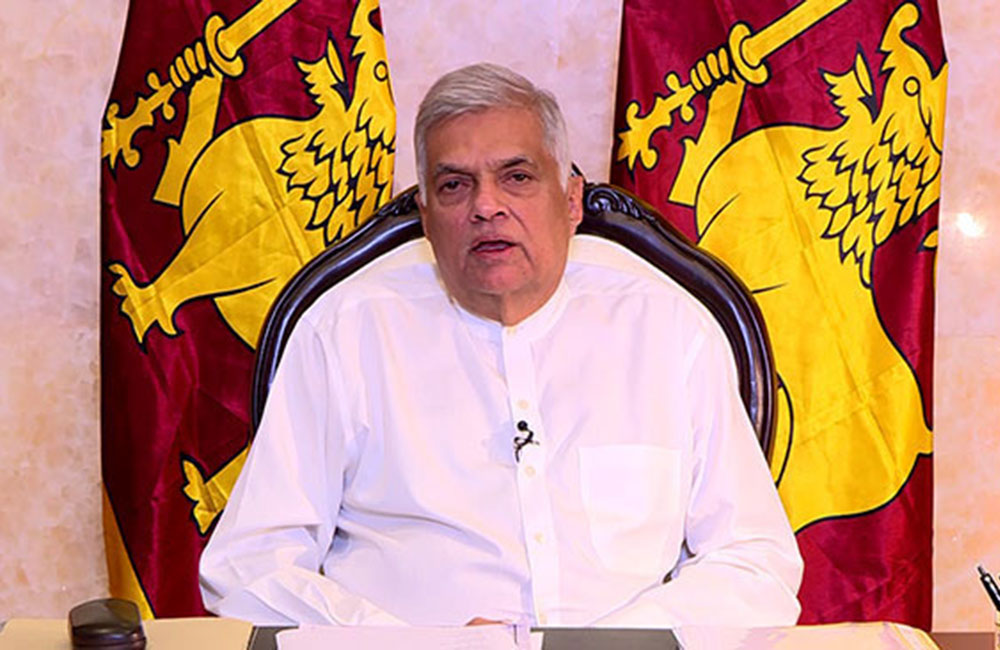
President to deliver special statement tomorrow
President Ranil Wickremesinghe will deliver a special statement addressing the government’s efforts over the past nine months to revive Sri Lanka’s economy, as well as outlining the forthcoming stages of the country’s social, economic, and political reform agenda.
This special statement is scheduled to be broadcasted tomorrow (01) at 8:00 PM across all television, radio, and digital media platforms throughout the country, ensuring that the entire public is informed and comprehends the message.
The objective is to provide the public with a comprehensive understanding of Sri Lanka’s national transformation roadmap and to present the proposed strategies for accomplishing the envisioned objectives.

17% of population is in moderate acute food insecurity in Sri Lanka
Food security in Sri Lanka is improving across all provinces, according to the Crop and Food Security Assessment Mission (CFSAM) report jointly carried out in February/March 2023 by the Food and Agriculture Organization of the United Nations (FAO) and the United Nations World Food Programme (WFP).
The report estimates 3.9 million people or 17 percent of the population is in moderate acute food insecurity which is nearly a 40 percent decrease from June/July last year. Nearly 10,000 people are severely acute food-insecure, down from 66,000 people last year.
The improvement in food security stems from better food consumption, which could be attributed to reduced food prices and improved incomes among farming communities during the harvesting period when the mission was carried out.
Despite this positive trend, food insecurity remains high in certain districts, especially Kilinochchi, Nuwara Eliya, Mannar, Batticaloa, Vavuniya, and Jaffna. The highest level of acute food insecurity was found within the tea plantation communities in the Estate sector and among daily wage labourers and households who rely on social assistance programmes, such as Samurdhi, as their main source of income.
Production of cereal, including rice and maize, across the two main cropping seasons in 2022/23 is forecast at 4.1 million tonnes, 14 percent below the past five-year average, mainly due to poor plant nutrition caused by an inadequate supply of fertilizer and unaffordability of essential material inputs. However, essential fertilizers distributed to smallholder farmers by the Government, facilitated by funds received from multilateral and bilateral donor agencies, has significantly impacted production, marking an improvement in the yield with productivity in the recently harvested 2022/23 “Maha” season, 12% higher than the 2022 “Yala” season.
Representative of FAO to Sri Lanka and the Maldives, Mr. Vimlendra Sharan speaking on CFSAM Report findings said, “The Crop and Food Security Assessment Mission (CFSAM) report is an eye-opener on the continuing vulnerabilities and challenges that exist within the food systems of Sri Lanka. This report and its findings will no doubt serve as a guiding light for policymakers and stakeholders to collectively work towards ensuring food security, strengthening agricultural resilience and mitigating risks faced by farmers and rural communities who have been disproportionately impacted by the economic crisis. FAO remains committed to supporting Sri Lanka in their efforts towards achieving sustainable food systems, food security and zero hunger."
“After many months of challenges, we are finally witnessing an improvement to the country’s food security,” said Abdur Rahim Siddiqui, WFP Sri Lanka’s Representative and Country Director. “But there is more to be done. A high number of households -- more than 60 percent -- are adopting negative measures to put food on the table, including borrowing money and purchasing food on credit. WFP will extend its emergency operation, which commenced last year, to provide food rations and cash assistance to people identified as food insecure.”
Mission recommendations:
The joint FAO/WFP Mission recommends providing immediate support to farmers, particularly by releasing available fertilizer stocks to enhance production and productivity in the ongoing “Yala” season and make urgent policy decisions to import fertilizers in time for the 2023/24 “Maha” cultivation season. The report also recommends any move for reducing or removing fertiliser subsidy to be in a gradual and phased manner, giving adequate time to the farming community to adapt.
Other recommendations include the establishment of a “Fertilizer Task Force” to streamline fertilizer procurement and distributions as well as to strengthen adaptive research on climate smart agriculture and sustainable farming practices to improve fertiliser use efficiency. Further, to minimize the impact on the livestock and fisheries sectors, the mission recommends providing adequate support to increase fodder and feed crop production.
Further recommendations include continuing food and/or cash assistance to facilitate access to food among households most vulnerable to food insecurity. In the long-term, increased livelihood support to food-insecure households and resilience-building initiatives are also recommended to prevent them from compromising on productivity and their capacity to cope with future shocks.
newsfirst
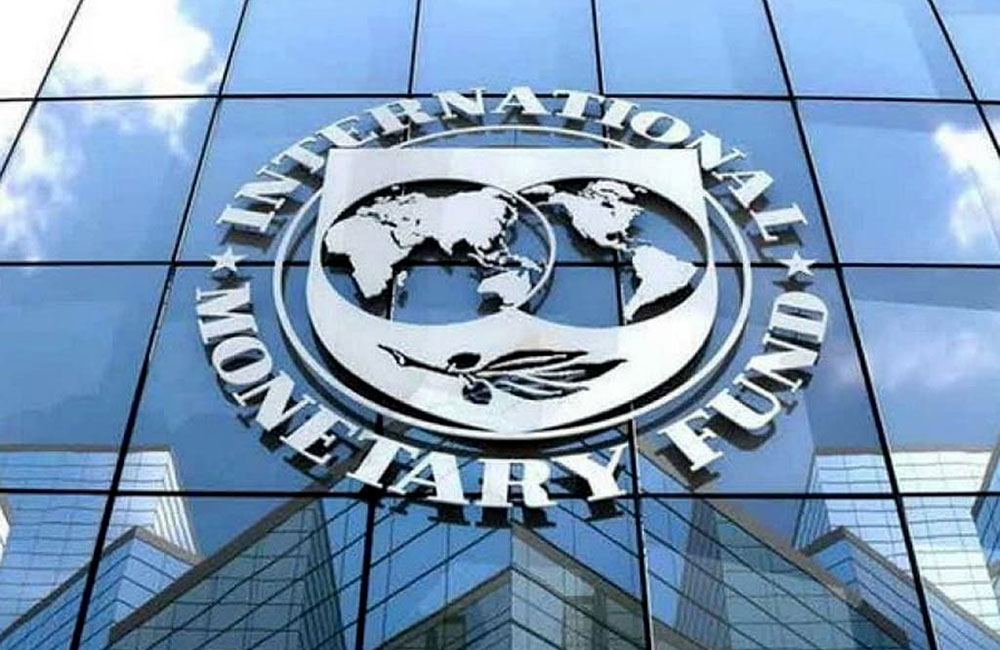
IMF’s Deputy Managing Director to arrive in Sri Lanka tomorrow
Deputy Managing Director of the International Monetary Fund (IMF) Kenji Okamura will arrive in Sri Lanka tomorrow (May 31) for a two-day official visit, State Minister of Finance Shehan Semasinghe says.
During his visit to the island nation, Okamura is expected to hold several rounds of discussions on the recent changes in Sri Lanka’s economic stability and the opportunities to empower the economy in the future.
The discussions will also focus on the methods to minimize the obstacles and delays hampering the economic recovery.
Okamura’s visit comes days after the IMF staff team’s visit to Sri Lanka, which was part of the regular consultations between the global lender and the island nation, ahead of the first review mission later in 2023.
The delegation was led by Krishna Srinivasan, the IMF’s Director of Asia and Pacific Department; Peter Breuer, the Asia and Pacific Department’s Senior Mission Chief for Sri Lanka; and Sarwat Jahan, the IMF Resident Representative in Sri Lanka.
The IMF staff team’s visit came after the first meeting of Sri Lanka’s official bilateral creditors committee, during which the island nation’s authorities formally presented a request for debt treatment. China, Saudi Arabia and Iran were in attendance as observers. The committee, co-chaired by India, Japan and France, consists of 17 members and includes Paris Club creditors as well as other official bilateral creditors.
On April 14, France, India and Japan unveiled a common platform for talks among bilateral creditors to co-ordinate restructuring of Sri Lanka’s debt.
Addressing the launch of Sri Lanka’s debt restructuring process, the IMF’s Deputy Managing Director had said that an expeditious debt resolution is needed for Sri Lanka to emerge as quickly as possible from its crisis.
Okamura also expressed hope that all bilateral creditors would participate in negotiations and complete them before the first review.
Sri Lanka owes USD 7.1 billion to bilateral creditors, government data show, with USD 3 billion owed to China, followed by USD 2.4 billion to the Paris Club of creditor nations and USD 1.6 billion to India.
The Extended Fund Facility (EFF) program of the IMF approved by its executive board in March comes with strict conditionalities for economic reforms.
Sri Lanka had to secure assurances from official bilateral creditors that they would help debt relief and/or financing to restore debt sustainability consistent with the IMF-supported EFF program, as well as an assessment that the authorities are making good faith efforts to reach a private agreement with private creditors.
As these requirements were met ahead of the IMF Board meeting in March, the IMF approved the 48-month extended arrangement of 2.286 billion SDR (Special Drawing Rights), which amounts to USD 3 billion, for Sri Lanka.
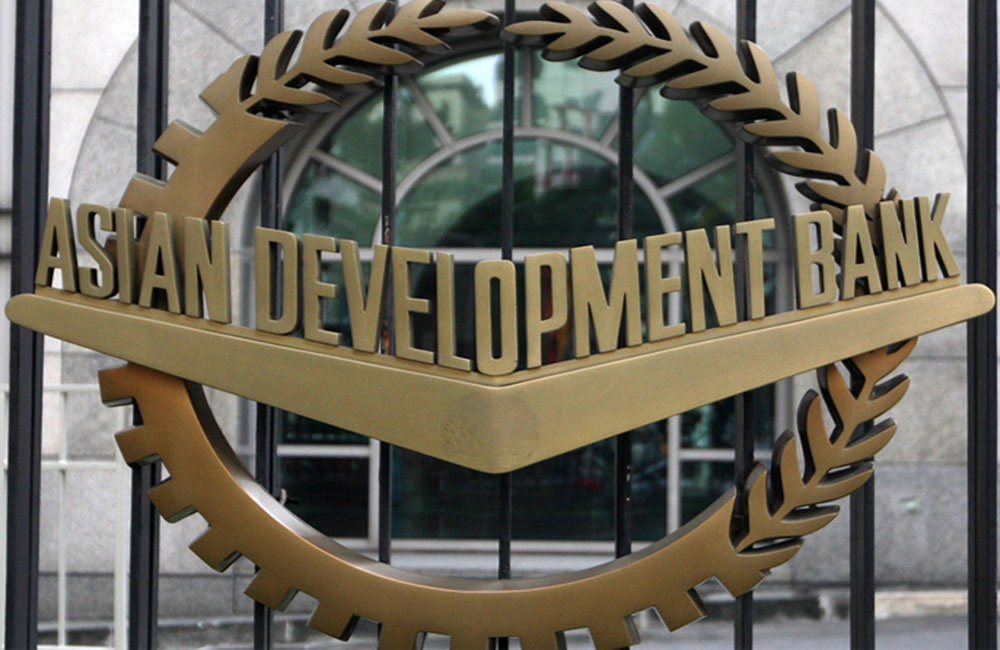
ADB approves $350 million for Sri Lanka economic stabilization program
The Asian Development Bank (ADB) today approved a $350 million special policy-based loan to provide budget support to Sri Lanka for economic stabilization.
The program is part of a broader package of financial assistance anchored by the International Monetary Fund’s Extended Fund Facility for the country, which aims to stabilize the economy and lay the foundation for economic recovery and sustained growth.
Sri Lanka is facing a severe and unprecedented economic crisis. High inflation has eroded purchasing power, livelihoods have been affected, and past development gains have been reversed.
“ADB is concerned about the deep crisis in the country and its impact on the people of Sri Lanka, especially the poor and the vulnerable, particularly women,” said ADB President Masatsugu Asakawa. “ADB is committed to standing with Sri Lanka as it addresses its present challenges and strides toward economic stabilization, sustainable recovery, and inclusive growth.”
Sri Lanka has embarked on bold reforms to address the causes of both internal and external imbalances and return to a sustainable debt trajectory.
The country faces a long road to recovery and must remain steadfast in the implementation of necessary reforms, which include enhancing tax revenue collection, strengthening public financial management, improving performance of state-owned enterprises, ensuring autonomy and independence of the central bank, safeguarding financial sector stability, and bolstering governance frameworks.
"As these measures are implemented, it is essential to ensure that adequate social protection is provided. Implementing governance reforms and anticorruption measures will be critical," the ADB added.
Page 269 of 684